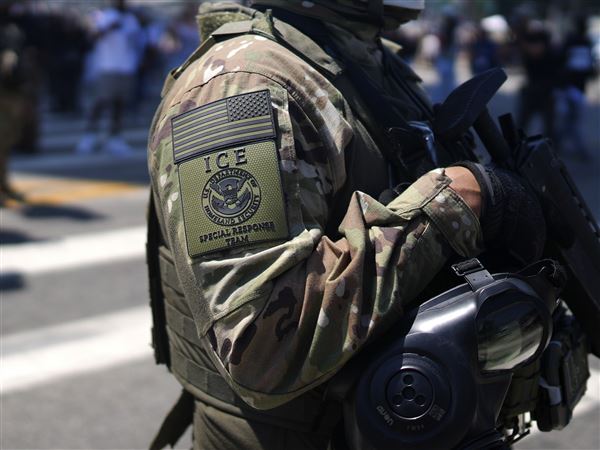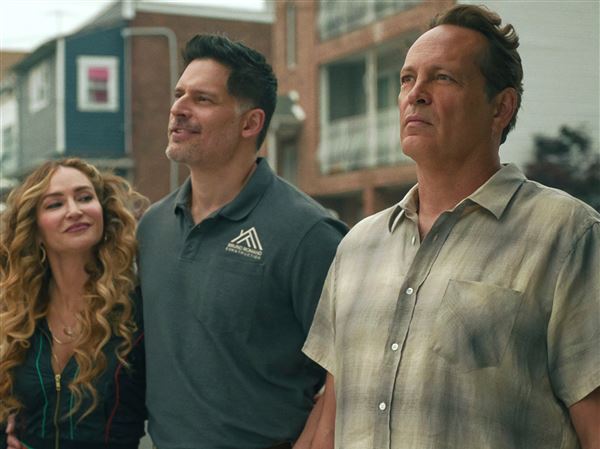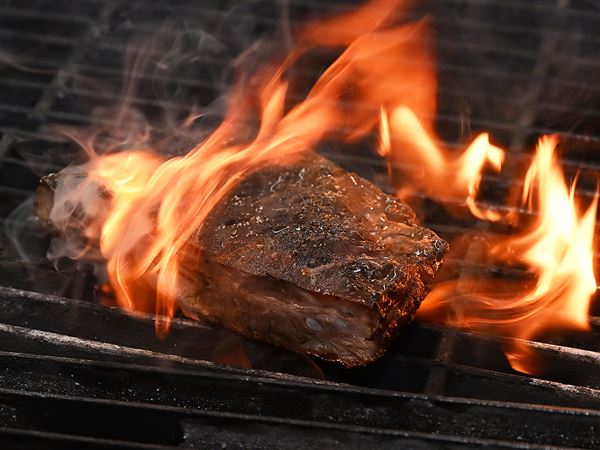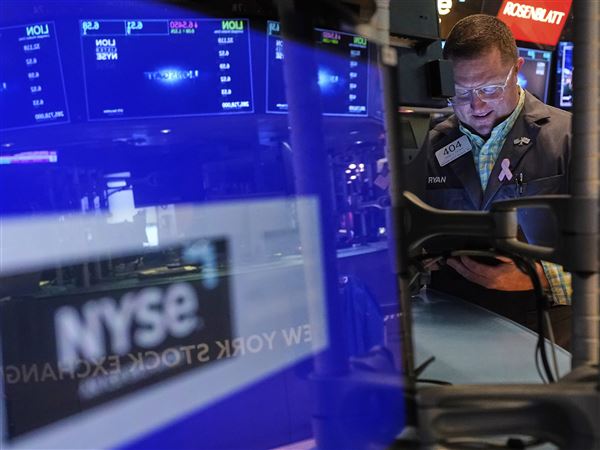As a kid growing up in Columbus, Ohio, Haider Ala Hamoudi didn't worry about bogeymen or witches or ghouls.
Saddam Hussein stalked his nightmares.
The Iraqi dictator had killed his uncle and cousin, and the little boy worried that Hussein would come get him in the night shadows of his Ohio bedroom.
Twenty five years later, he was thrilled when the United States became Saddam Hussein's worst nightmare by toppling his regime. In fact, Dr. Hamoudi was so hopeful about a new Iraq that he moved there on July 14, 2003.
But it wasn't long before his high hopes came crashing down.
His experiences in postwar Iraq is the subject of his moving new memoir, "Howling in Mesopotamia."
Dr. Hamoudi, now a 37-year-old University of Pittsburgh associate law professor, writes about the terror of having an American soldier pointing a gun barrel at his head, the frustration of having an Iraqi neighbor steal his electricity by splicing a wire, and the futility of trying to find a place to exercise.
He left Iraq two years later, in June 2005, worn out and defeated.
"Between air-conditioning failures, power cuts, limited grocery options, appallingly slow Internet connections, a near entire lack of recreation, and of course, a constant fear of annihilation, life was becoming unbearable, my ability to write limited, and my ability to teach Iraqi students psychologically exhausting," he wrote. "I felt myself wasting away."
Dr. Hamoudi had never given up before.
A first-generation Iraqi American who was raised in a Muslim household where dinner conversations bounced between English and Arabic, Dr. Hamoudi had always persevered, weathering the occasional taunt of "towelhead" in the white-bread world of his childhood. He graduated from Massachusetts Institute of Technology and Columbia Law School, before landing a job as a corporate attorney in New York City, working in offices in Indonesia and Hong Kong.
But doing business in Iraq confounded him. He set up a law office shingle to attract foreign clients.
"No one outside of Iraq wanted to invest in Iraq," he said. "The situation was too uncertain."
So he closed his failed law office but found another opportunity. He headed a project called the International Human Rights Law Institute, sponsored by DePaul University School of Law, to improve Iraq legal education. He helped improve law libraries, updated the curriculum and introduced case studies in Iraqi law schools -- work he found rewarding but frustrating because of the infrastructure problems.
He loved reconnecting with his relatives, especially beloved grandmother Wajeeha, and meeting Iraqis, whom he found warm and generous, but frightened and worn out.
"Everyone knows a war zone is dangerous. I don't think they realize how terribly boring it is. You can't go bowling or play miniature golf or go to the movies. There are very few restaurants. It is a much more limited life."
Consuming food became the major recreation in Iraq, leading to the highest concentration of obese people he had ever seen. And that's saying something, coming from this native of the U.S. Midwest, no stranger to fat cells.
Dr. Hamoudi's quest for a half decent exercise facility was maddening. It didn't help that his Iraqi relatives couldn't understand why he would want to pay to sweat.
"I just want to make sure I understand what you are saying Hader," his uncle said. "You are going to eat nothing but meat, which costs money, and then going to spend more money to go running around on a machine."
"Well, if you put it like that ..." Dr. Hamoudi interjected.
"It's not a question of how you put it. It's a question of whether or not this is what rich people do when they have too much money. Spending money eating too much and then spending money to lose weight that you gain from spending money. Can't you just eat less?"
There were other cultural differences -- the American optimism and feeling of self-determination vs. the Iraqi fatalism and distrust of official news sources. It was hard to dissuade some Iraqis from the street rumor that the U.S. soldiers wore sunglasses that let them see through women's clothes.
Almost every day there, people would ask him whether he considered himself an Iraqi or an American, a question that always confounded him. His identity was part of both worlds.
"I feel more American in Iraq and more Iraqi in America," he said in his Pitt office.
He had his brushes with danger, most notably the time he and an Iraqi driver were transporting a generator for the law project, and it got stuck on a suspension bridge. U.S. soldiers forced them out of their cars and onto the ground, and pointed guns at them while spewing profanities. Dr. Hamoudi thought he was staring down his own death -- until the soldier dropped the weapon after he produced his Ohio driver's license.
Although Dr. Hamoudi had several bad experiences with U.S. soldiers, he doesn't blame them because they were demoralized and were fighting an unseen enemy. But he does blame President Bush and U.S. policymakers as well as Iraqi political leaders for not letting go of their centuries-old differences.
For all his frustrations, he found true love in Iraq. He met an Iraqi attorney named Sara Burhan Abdullah, and they courted secretly because Muslim norms prohibited open dating. Even phone calls were secret. And Ms. Abdullah, a Kurd, also had to face the disapproval of her friends for falling in love with an Arab.
"Why this man?" they asked her. "First, he is a foreigner. Second he is an Arab, and he is not aware of our culture."
"You don't know this guy," she retorted. "Not all Arabs are against Kurds. He is a good person who loves me and wants to take care of me. "
Today, the two, who were married in Columbus, Ohio, are happily living in Pittsburgh. His years in Iraq have helped him land the job as a Pitt professor. She is a Pitt student. The couple has not experienced much anti-Iraqi sentiment -- except an occasional anonymous rant sent to his blog called muslimlawprof.org.
Maybe someday they will move back to Iraq if the country stabilizes. But as Dr. Hamoudi wrote sadly in his book, "I had to leave. I had to live."
First Published: February 27, 2008, 10:00 a.m.
















